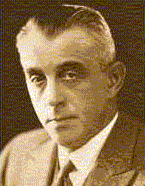Loser's Guide to Life
 |
| It could make an exciting movie. |
I used to know a man who had the following advice for the newly-divorced: "Stop the puppet show!" What he meant by this was that there's no point in reliving the events and altercations leading to a breakup, because all that drama is just in your head, taking up valuable space. You can't alter what happened and you probably can't learn anything useful from it. In the graver matter of Iraq, however, Christopher Hitchens has decided to do this very thing by revisiting the runup to the conflict in a nettled, sorrowful essay called "My Ideal War: How the International Community Should Have Responded to Bush's September 2002 U.N. Speech.". ("My Ideal War", by the way, sounds an awful lot like a bitter antiwar play by some British playwright of the 1960s.)
And why does he write this now?
Up until now, I have resisted all urges to assume the mantle of generalship and to describe how I personally would have waged a campaign to liberate Iraq.
So he has given in to those urges, been made a general, and is at last prepared to "describe how I personally would have waged a campaign to liberate Iraq". That would be worth seeing, Mr Hitchens actually liberating Iraq in person, like Byron or Lawrence. It could make an exciting movie. But that's not what his article is about.
What I really wanted fom this war, he seems to be saying, is for the rest of the world to have been 100 percent behind the effort and to have joined in without quibble. He counters the objections to war with the same arguments as before, augmented by more of the same: "As for the 'terror' connection, [Stephen] Hayes in a series of unrebutted articles has laid out a tranche of suggestive and incriminating connections..."
The links are to some discussion of memos that still don't add up to anything. "Suggestive" is the right word here. But I am more intrigued by his use of the word "tranche". I've only ever seen it used to mean a specified amount of money paid out on some condition, such as a loan. In French it means "a slice" of anything and, like a lot of foreign words, it was borrowed with a purpose, and therefore has a much narrower application in English than it does in its original language. Why does Mr Hitchens use it then? I think it's to make that bunch of stories seem as important as millions of dollars' worth of finance. But it's really more stuff for the General's puppets to say to each other.
